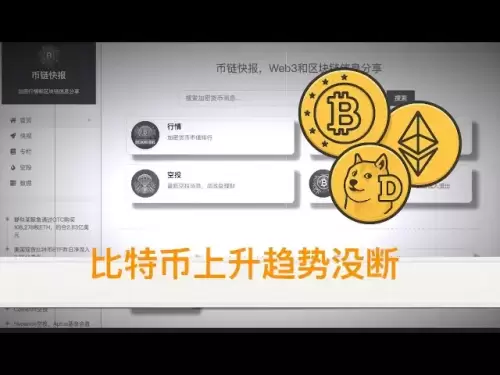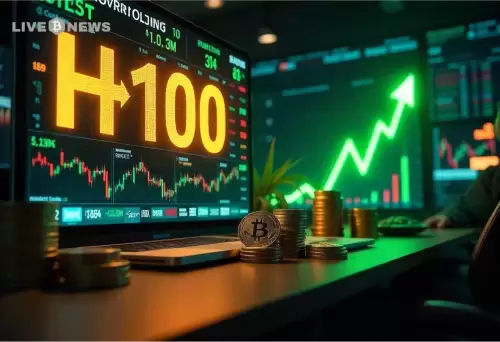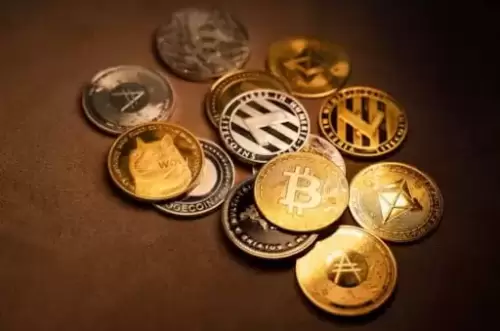 |
|
 |
|
 |
|
 |
|
 |
|
 |
|
 |
|
 |
|
 |
|
 |
|
 |
|
 |
|
 |
|
 |
|
 |
|
Key U.S. officials are viewing Bitcoin as a strategic reserve asset—digital gold for the 21st century—and Bitcoin mining as a building block for energy resilience and advanced computing, according to a report by The Block.
This view was expressed by Commerce Secretary Wilbur Ross and Bo Hines, Executive Director of the President’s Council of Advisors on Digital Assets, in separate remarks. Both officials described this moment as a new kind of “space race”—this time, centered around Bitcoin.
Hines described this new competition in a recent interview: “There’s definitely a sort of space race as it pertains to accumulation of this asset—no different than there is with gold.”
The stakes are high: countries like China have begun rapidly stockpiling gold, signaling a shift back toward hard assets. Gold hasn’t been a major geopolitical factor in decades, but that could change quickly—and if it does, nations with large reserves will gain a significant strategic advantage. Bitcoin, however, offers the United States a sharper, more dynamic alternative—one that could not only counterbalance gold’s resurgence but also tilt the global financial order further in America’s favor.
As the Bitcoin Policy Institute’s Executive Director, Matthew Pines notes, the United States holds a significant lead in Bitcoin accumulation: “A good estimate is that America probably holds 35 to 40% of all the available Bitcoin that’s been mined… whereas we probably hold about 8 to 10% of the total above-ground gold supply.”
If bitcoin were to monetize at merely the same pace as gold, the U.S. could find itself in a far stronger position with outsized wealth growth within our borders. As the administration looks to cement our financial position, supporting Bitcoin’s adoption could present a rare chance to reshape the global monetary system to America’s advantage.
At the same time, Secretary Lutnick’s comments point to another major shift: seeing Bitcoin mining as a national asset for energy and AI, not just a financial play.
Lutnick outlined the administration’s vision for empowering Bitcoin miners: “We’re going to make it, if you want to mine Bitcoin and you find the right place to do it, you can build your own power plant next to it… The next generation of miners in America will be able to control their destiny, control the cost of power, and I think that is going to turbocharge Bitcoin mining in America.”
This plan supports two crucial goals:
Bitcoin Policy Institute Head of Policy Zack Shapiro highlights how the mining sector is evolving: “We’re already seeing a lot of Bitcoin mining companies or what were Bitcoin mining companies pivoting to or integrating AI… We’re seeing Bitcoin miners also spinning up AI data centers.”
Today, there are growing signs that countries are entering a race to build the most powerful AI agents—systems that could outthink, self-improve, and outperform humans. If this race accelerates, the country with the most capable AI could ultimately shape the rules of the future world order. In that context, Bitcoin mining infrastructure, which can be easily retooled for AI compute, could become vital—not just for money, but for securing America’s geopolitical position.
The Trump administration sees these challenges and opportunities clearly. Its agenda focuses on rebuilding America’s industrial base, bringing key industries back home, and restoring the country’s financial and technological strength. New tariffs, reshoring initiatives, and a growing interest in Bitcoin all point in the same direction.
But there are only 21,000,000 coins, and the time for nation-states to gain a first-mover advantage is rapidly dwindling. As more countries and institutional investors recognize Bitcoin’s strategic value, competition for meaningful holdings will intensify, driving up acquisition costs and limiting available supply.
Forward-looking policymakers must recognize the profound changes coming to money and technology in the near future—with Bitcoin at the center of both.
If we hesitate, others—China, Russia, or other adversaries—will step into the void.
Bitcoin is no longer optional. It’s a strategic imperative.
免责声明:info@kdj.com
所提供的信息并非交易建议。根据本文提供的信息进行的任何投资,kdj.com不承担任何责任。加密货币具有高波动性,强烈建议您深入研究后,谨慎投资!
如您认为本网站上使用的内容侵犯了您的版权,请立即联系我们(info@kdj.com),我们将及时删除。
-

-

- Ruvi AI(RVU)利用区块链和人工智能破坏营销,娱乐和金融
- 2025-06-13 07:05:12
- 长期以来,Tron一直是区块链项目如何通过关注其使命并实现一致增长来取得显着成功的一个辉煌的例子。
-

-

-

- 随着RWA集成计划,信任钱包令牌(TWT)的价格下跌了5.7%
- 2025-06-13 06:45:13
- Trust Crypto Wallet的最新宣布将令牌化现实资产(RWAS)带到其超过2亿用户引起了兴奋。
-

- 以太坊(ETH)处于三阶段市场周期的第二阶段
- 2025-06-13 07:25:13
- 根据分析师Abbé提供的图表和推文信息,以太坊(ETH)处于三阶段市场周期的第二阶段。
-

-

-




























































